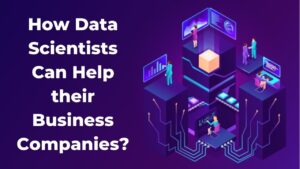Python is widely used in data science for several reasons:
Readability and Ease of Use:
Python has a simple and readable syntax, making it easy to learn and understand. Its code is more concise and expressive compared to other programming languages, which leads to faster development and easier maintenance.
Learn the core concepts of Data Science Course video on Youtube:
Want to learn more about data science? Enroll in this data science course fees to do so.
Vast Ecosystem of Libraries:
Python has a rich ecosystem of libraries specifically designed for data science, such as NumPy, Pandas, Matplotlib, and scikit-learn. These libraries provide efficient and comprehensive tools for data manipulation, analysis, visualization, and machine learning.
Data Handling Capabilities:
Python excels at handling data in various formats, including CSV, Excel, JSON, and databases. Libraries like Pandas offer powerful data structures and functionalities for data cleaning, transformation, and exploration.
Statistical Analysis and Modeling:
Python provides extensive support for statistical analysis and modeling through libraries like SciPy and StatsModels. These libraries offer a wide range of statistical functions, hypothesis testing, regression models, and more.
Earn yourself a promising career in data science by enrolling in the Masters in learn data science with python course in Bangalore offered by 360DigiTMG.
Machine Learning and AI:
Python is one of the most popular languages for machine learning and artificial intelligence applications. Libraries such as scikit-learn, TensorFlow, and PyTorch provide a robust foundation for developing and implementing machine learning algorithms and neural networks.
Flexibility and Integration:
Python is a highly flexible language that can be easily integrated with other technologies and tools. It can interface with databases, web frameworks, big data platforms, and cloud services, allowing data scientists to seamlessly incorporate their work into larger applications and systems.
Also, check this data science classroom course in Hyderabad to start a career in Data Science.
Community and Support:
Python has a large and active community of data scientists and developers. This community contributes to the development of open-source libraries, provides extensive documentation, and offers support through forums and online resources. The availability of resources and community support makes Python an attractive choice for data scientists.
Reproducibility and Collaboration:
Python promotes reproducibility in data science workflows. By using Jupyter notebooks or scripts, data scientists can document their code, experiments, and results in an interactive and shareable format. This allows for easy collaboration, knowledge sharing, and replication of analyses.
360DigiTMG offers the full time data science course in Chennai to start a career in Data Science. Enroll now!
Scalability and Performance:
While Python is an interpreted language, it offers ways to optimize performance when working with large datasets. Libraries like NumPy and Pandas are built on top of efficient C/C++ code, enabling high-performance numerical computations. Additionally, Python can leverage parallel processing and distributed computing frameworks such as Dask and Spark for scaling data-intensive tasks.
Industry Adoption and Job Market:
Python has gained significant popularity and widespread adoption in the data science industry. Many organizations and companies use Python as their primary language for data analysis and machine learning. Consequently, there is a high demand for data scientists proficient in Python, making it a valuable skill in the job market.
Educational Resources:
Python’s popularity in data science has led to the development of numerous educational resources, tutorials, and online courses focused on using Python for data analysis. These resources make it easier for beginners to enter the field and for experienced data scientists to enhance their skills.
Becoming a Data Scientist is possible now with the 360DigiTMG colleges offering data science course in Pune. Enroll today.
Interoperability with Other Languages:
Python’s versatility extends to its ability to integrate with other languages. It can interact seamlessly with languages like R, Java, C++, and more, allowing data scientists to leverage existing code and libraries in different languages.
Rapid Prototyping and Experimentation:
Python’s interactive nature and quick feedback loop make it ideal for rapid prototyping and experimentation. Data scientists can iteratively develop and refine their models, visualizations, and analyses, accelerating the discovery process.
Web Development and Deployment:
Python’s popularity extends beyond data science, and it is widely used in web development. This makes it easier to develop end-to-end data science applications, from building data pipelines to deploying machine learning models as web services or web applications.
Cross-Platform Compatibility:
Python is a cross-platform language, meaning it can run on various operating systems such as Windows, macOS, and Linux. This portability allows data scientists to work seamlessly across different environments and ensures that their code can be executed on different platforms without major modifications.
Data Visualization:
Python offers excellent data visualization capabilities through libraries like Matplotlib, Seaborn, and Plotly. These libraries enable the creation of interactive and visually appealing charts, graphs, and plots, allowing data scientists to communicate insights effectively.
Natural Language Processing (NLP):
Python has become a popular choice for natural language processing tasks. Libraries such as NLTK (Natural Language Toolkit), SpaCy, and Gensim provide powerful tools and algorithms for text processing, sentiment analysis, topic modeling, and more.
Community-driven Development:
Python’s data science community actively develops and maintains a wide range of open-source projects. This collaborative environment fosters innovation, encourages the sharing of best practices, and leads to continuous improvements in data science tools and techniques.
Easy Integration with Big Data Technologies:
Python integrates well with big data technologies such as Apache Hadoop and Apache Spark. PySpark, a Python library for Spark, allows data scientists to leverage the distributed computing power of Spark for processing and analyzing large-scale datasets.
Accessibility for Non-programmers:
Python’s simplicity and readability make it accessible to individuals with non-programming backgrounds, including domain experts and business analysts. Its low learning curve enables a broader audience to engage in data analysis and derive insights from data.
Data Science Education and Community:
Python has become the de facto programming language for data science education. Many universities and online learning platforms offer courses and tutorials in Python for data science, ensuring that aspiring data scientists have ample resources and support to acquire the necessary skills.
Prototyping IoT and Sensor Data Applications:
Python’s versatility extends to the Internet of Things (IoT) domain. It can be used for prototyping and developing applications that handle sensor data, IoT devices, and real-time analytics, allowing data scientists to explore and extract insights from IoT-generated data.
Deep Learning:
Python is widely adopted in the field of deep learning. Libraries like TensorFlow and PyTorch provide high-level abstractions for building and training neural networks, enabling data scientists to tackle complex tasks such as image recognition, natural language processing, and recommendation systems.
Experimentation and Iteration:
Python’s interactive and dynamic nature allows for rapid experimentation and iteration. Data scientists can quickly test ideas, tweak parameters, and explore different approaches, which is crucial for the iterative nature of data science workflows.
Data Science Placement Success Story
Support for Web Scraping and Data Extraction:
Python provides excellent support for web scraping and data extraction tasks. Libraries such as BeautifulSoup and Scrapy make it easy to retrieve and parse data from websites, allowing data scientists to gather valuable information from online sources.
Data Science Training Institutes in Other Locations
Tirunelveli, Kothrud, Ahmedabad, Hebbal, Chengalpattu, Borivali, Udaipur, Trichur, Tiruchchirappalli, Srinagar, Ludhiana, Shimoga, Shimla, Siliguri, Rourkela, Roorkee, Pondicherry, Rajkot, Ranchi, Rohtak, Pimpri, Moradabad, Mohali, Meerut, Madurai, Kolhapur, Khammam, Jodhpur, Jamshedpur, Jammu, Jalandhar, Jabalpur, Gandhinagar, Ghaziabad, Gorakhpur, Gwalior, Ernakulam, Erode, Durgapur, Dombivli, Dehradun, Cochin, Bhubaneswar, Bhopal, Anantapur, Anand, Amritsar, Agra , Kharadi, Calicut, Yelahanka, Salem, Thane, Andhra Pradesh, Greater Warangal, Kompally, Mumbai, Anna Nagar, ECIL, Guduvanchery, Kalaburagi, Porur, Chromepet, Kochi, Kolkata, Indore, Navi Mumbai, Raipur, Coimbatore, Bhilai, Dilsukhnagar, Thoraipakkam, Uppal, Vijayawada, Vizag, Gurgaon, Bangalore, Surat, Kanpur, Chennai, Aurangabad, Hoodi,Noida, Trichy, Mangalore, Mysore, Delhi NCR, Chandigarh, Guwahati, Guntur, Varanasi, Faridabad, Thiruvananthapuram, Nashik, Patna, Lucknow, Nagpur, Vadodara, Jaipur, Hyderabad, Pune, Kalyan.
Data Analyst Courses In Other Locations
Tirunelveli, Kothrud, Ahmedabad, Chengalpattu, Borivali, Udaipur, Trichur, Tiruchchirappalli, Srinagar, Ludhiana, Shimoga, Shimla, Siliguri, Rourkela, Roorkee, Pondicherry, Rohtak, Ranchi, Rajkot, Pimpri, Moradabad, Mohali, Meerut, Madurai, Kolhapur, Khammam, Jodhpur, Jamshedpur, Jammu, Jalandhar, Jabalpur, Gwalior, Gorakhpur, Ghaziabad, Gandhinagar, Erode, Ernakulam, Durgapur, Dombivli, Dehradun, Bhubaneswar, Cochin, Bhopal, Anantapur, Anand, Amritsar, Agra, Kharadi, Calicut, Yelahanka, Salem, Thane, Andhra Pradesh, Warangal, Kompally, Mumbai, Anna Nagar, Dilsukhnagar, ECIL, Chromepet, Thoraipakkam, Uppal, Bhilai, Guduvanchery, Indore, Kalaburagi, Kochi, Navi Mumbai, Porur, Raipur, Vijayawada, Vizag, Surat, Kanpur, Aurangabad, Trichy, Mangalore, Mysore, Chandigarh, Guwahati, Guntur, Varanasi, Faridabad, Thiruvananthapuram, Nashik, Patna, Lucknow, Nagpur, Vadodara, Jaipur, Hyderabad, Pune, Kalyan, Delhi, Kolkata, Noida, Chennai, Bangalore, Gurgaon, Coimbatore.
For more information
360DigiTMG – Data Analytics, Data Science Course Training Hyderabad
Address – 2-56/2/19, 3rd floor,,
Vijaya towers, near Meridian school,,
Ayyappa Society Rd, Madhapur,,
Hyderabad, Telangana 500081
099899 94319
https://goo.gl/maps/sn21C9xFtMbCr4qm8
Source Link : What are the Best IT Companies in Uppal



